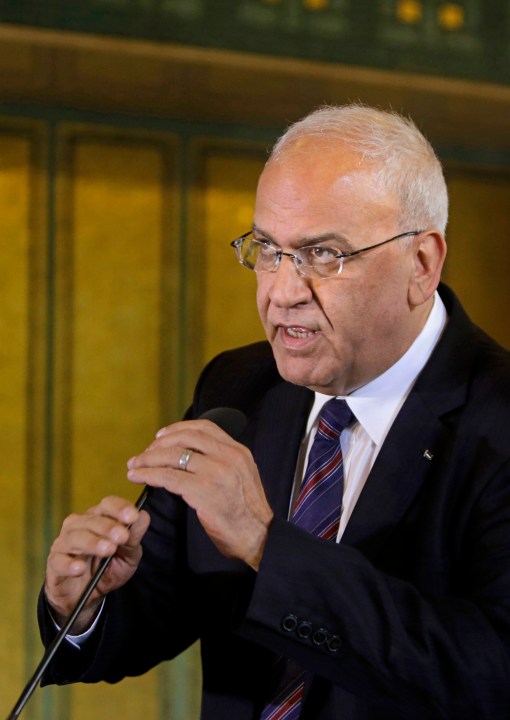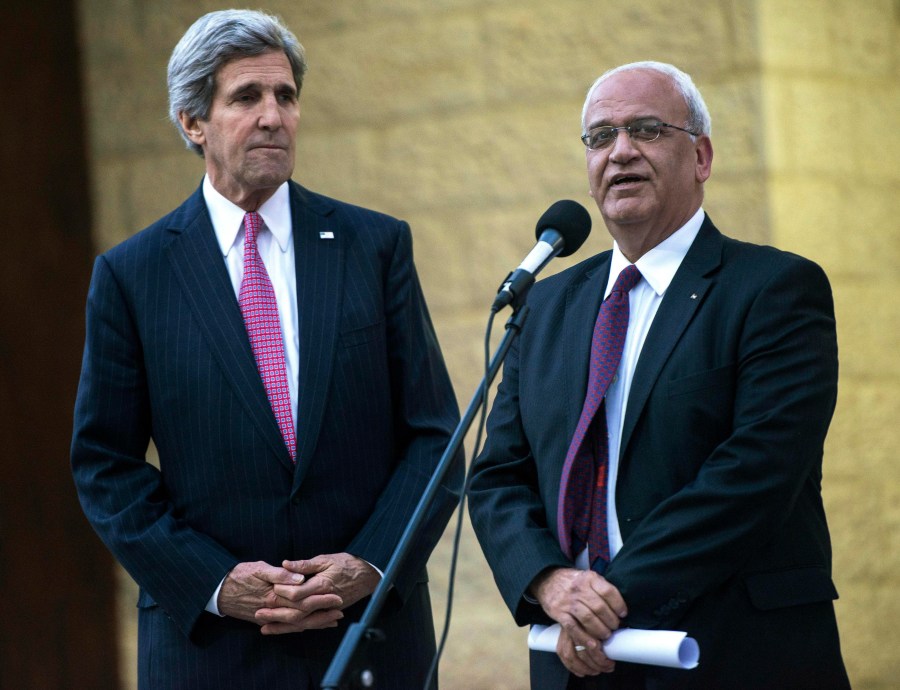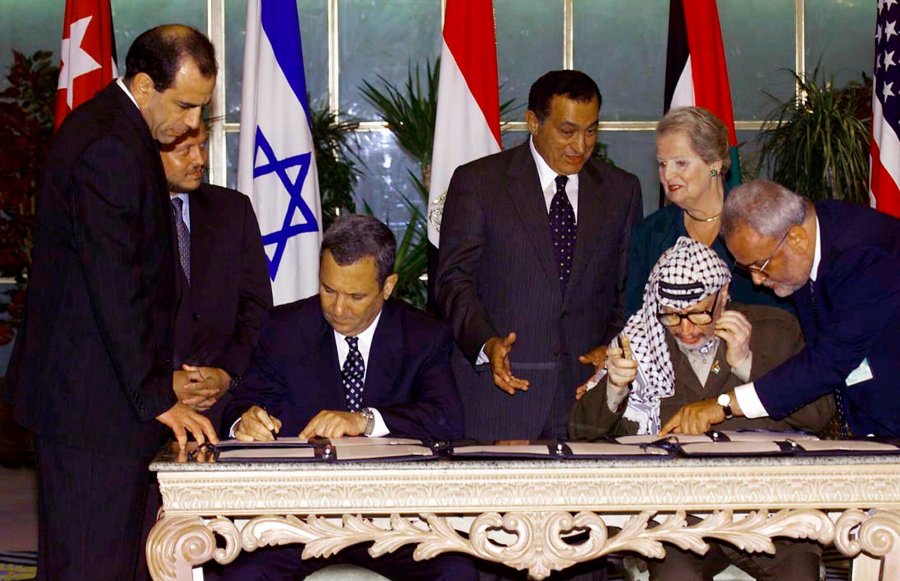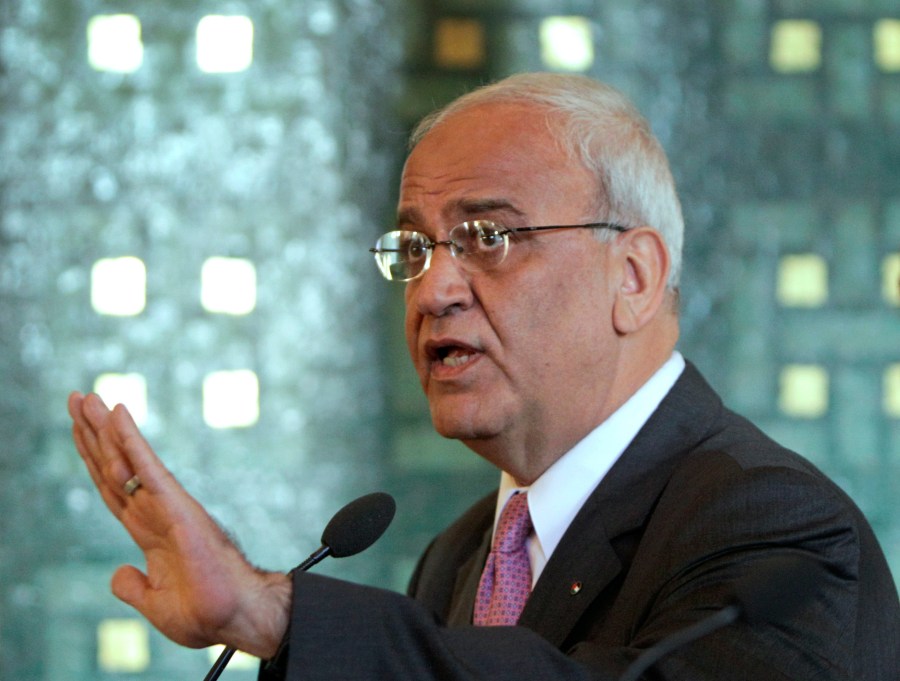Saeb Erekat, longtime Palestinian negotiator, dies after contracting COVID-19
JERUSALEM (Reuters) — Saeb Erekat, one of the most experienced and high-profile spokesmen for the Palestinian cause over decades of dispute with Israel, died on Tuesday after contracting COVID-19, his family said. He was 65.
“With hearts full of sorrow and pain, and with patience, Erekat’s clan everywhere mourns to the Palestinian Arab people and to the Arab and Muslim nation Saeb Erekat,” his extended family posted on Facebook.
Fluent in English as well as his native Arabic, he was a high-profile spokesman for Palestinian leaders such as Yasser Arafat and Mahmoud Abbas, though never a serious candidate to succeed them.
Erekat, the secretary general of the Palestine Liberation Organization (PLO), confirmed on Oct. 8 that he had contracted the coronavirus. Three years earlier he had undergone a lung transplant in the United States that left his immune system compromised.
He died after being hospitalized for weeks in Jerusalem’s Hadassah Medical Center. The family said he had died from “complications resulting from contracting coronavirus”.
One of the youngest members of the Palestinian leadership, Erekat was unusual in not having spent decades in exile with Arafat and Abbas, the older generation of his Fatah faction, which dominates the PLO.
Although well known in diplomatic circles across the world and regularly featured in the international media, he was on the second tier of Palestinian politics and diplomacy.
In recent years, Erekat was the principal Palestinian face of a war of words with the Trump administration over a U.S. plan that would leave Israel in control of Jewish settlements and large parts of the occupied West Bank.
But he remained an advocate of the negotiated creation of a Palestinian state alongside Israel even after peace talks collapsed in 2014.
A younger generation of Palestinians increasingly questioned whether such co-existence was possible, preferring instead a “one-state solution” of Israelis and Palestinians living together.
Having sat opposite Israeli leaders, Erekat regarded the one-state concept as unworkable, aware that Israel rejects it as a demographic liability as Palestinians would ultimately be the majority. His two-state vision was the only solution, he maintained.
“If not this year, in five years, 10 years, 50 years. But the unfortunate thing is the longer it takes, the more victims, the more people will be killed, the more violence, the more extremism. Saving lives is about going the path of two states, and it is doable,” he told Reuters in July 2019.
Erekat could be prickly in the face of criticism, but made a point of engaging in debate with critics, including Israelis.
JERICHO TO CAMP DAVID
When he was born in 1955, his family was living in Abu Dis, a village on the outskirts of Jerusalem. When he was young they moved to Jericho in the Jordan Valley, and he was 12-years-old when Israel captured the territory along with the rest of the West Bank in the 1967 Middle East war.
He left the West Bank in the 1970s to go to college.
After studying political science and international relations at San Francisco State University and gaining a doctorate in peace studies at Bradford in Britain, he worked as a lecturer in the West Bank city of Nablus before becoming a journalist.
Erekat first gained international recognition in 1991 when he was appointed vice-chair of the Palestinian negotiating team at the Madrid Peace Conference during the U.S. presidency of George H.W. Bush.
After Arafat returned from exile in the mid-1990s following interim peace agreements, Erekat oversaw preparations for elections under the newly created Palestinian Authority, and was himself elected to parliament.
He became increasingly prominent as a negotiator, taking part in the Camp David summit hosted by U.S. President Bill Clinton in 2000.
But those talks failed and the second Palestinian uprising broke out three months later, leading to five years of bloodshed and marginalizing advocates of a negotiated two-state solution.
In 2006 Erekat’s Fatah faction was weakened when it lost elections to its increasingly powerful domestic rival, the Islamist militant group Hamas, which rejects peace with Israel.
A year later, Hamas took over the Gaza Strip by force, dealing a further blow to Fatah’s credibility.
With Israel in control of East Jerusalem and Hamas in Gaza, Fatah was left with just limited self-rule in parts of the West Bank, among scores of Israeli settlements.
Externally, the Palestinians also found themselves increasingly isolated after Israeli voters from 2009 elected successive right-wing governments headed by Prime Minister Benjamin Netanyahu – long a critic of the Palestinian leadership.
Another challenge came with the election of President Donald Trump in 2016 – a year later the Palestinians stopped dealing with Trump, accusing him of pro-Israel bias.
In the last three months of Erekat’s life, the Palestinians faced shifting regional priorities when two Gulf Arab states suddenly signed diplomatic deals with Israel, reflecting shared fears of Iran and hopes of increased trade.
Asked a year before his death if there was a danger of the middle ground of Palestinian politics disappearing, Erekat told Reuters: “It’s happening. These are my sons and daughters and grandchildren. And they look at me in the eye and they say, ‘You did not deliver. Let the struggle change.”
But he was adamant that in the long run, his vision would prevail.
“The idea of the two-state solution will never die,” he said. “There is no other option.”
Editing by Jeffrey Heller and Angus MacSwan. © Copyright Thomson Reuters 2020























